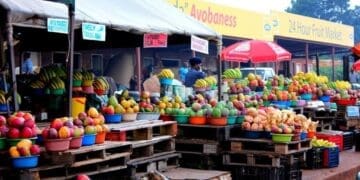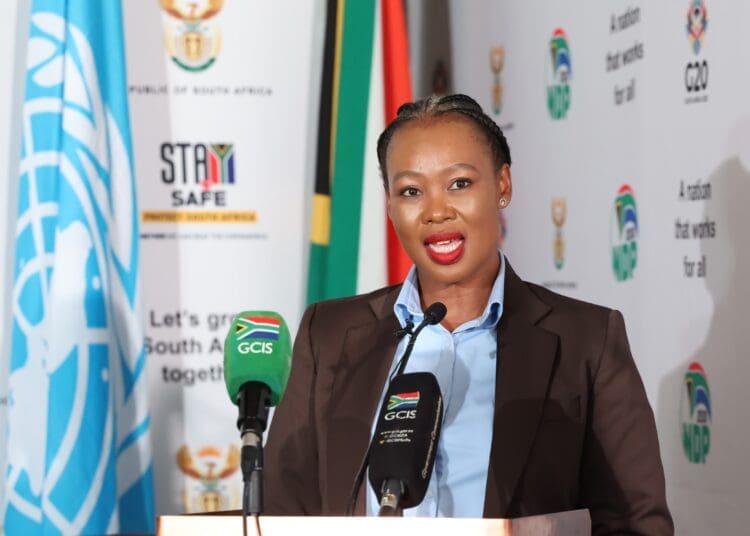South Africa has officially launched the countdown to the first-ever Global Small and Medium-sized Enterprises Ministerial meeting, which it will hosted in Johannesburg in July.
The three-day event, which is a joint initiative between the South African government and the UN-affiliated International Trade Centre, aims to create a global platform to elevate the small business agenda and promote inclusive economic growth.
Themed “Navigating New Business Frontiers”, the meeting comes at a critical time of transformation in global trade, with shifts in tariffs, digitalisation and sustainability standards reshaping business environments. With SMEs comprising 90% of businesses and two-thirds of global employment, policymakers say the sector must be prioritised to drive equitable development, particularly in developing economies.
Speaking at a media briefing in Pretoria on Thursday, Small Business Development Minister Stella Tembisa Ndabeni said the gathering from 22 -24 July would focus on access to finance, digital inclusion and preparing SMEs for the green transition.
“The G20 represents a vital platform for collective action. Through this ministerial [meeting] we are inviting global leaders to work with us to ensure small businesses are not left behind,” she said.
The minister said the aim was to issue a global call to action endorsed by participating ministers, which would lay the foundation for sustained collaboration and a biennial meeting of SME ministers going forward.
Nearly 50 countries, including Brazil, Egypt, India, Kenya, Switzerland and Cambodia, have confirmed attendance.
The event will also feature a business and innovation space to link government leaders with entrepreneurs and a leadership dialogue for trade promotion agencies to exchange best practices.
International Trade Centre executive director Pamela Coke-Hamilton, who also addressed the briefing, said SMEs were “not small in impact”, and warned against policy neglect.
“We need a space where countries can speak frankly about the real barriers their small businesses face, from financing to climate resilience. This Ministerial will be that space,” she said.
Ndabeni also spoke about the R500 million Spaza Shop Support Fund, which was launched in April, reiterating that it was designed to boost township and informal retail economies.
It is partnership between the Department of Small Business Development, which contributed R150 million, and the Department of Trade, Industry and Competition, which added R350 million.
The fund supports new and existing spaza shop owners through grants of up to R50,000. Beneficiaries can apply for R10,000 in stock start-up capital, R40,000 for bulk purchasing to improve competitiveness and R50,000 for infrastructure and equipment upgrades. Non-financial support, including training and operational mentorship, will also be provided over the next six months.
This initiative follows the national registration campaign that closed at the end of February. It is aimed at formalising the sector and improving compliance with health and safety regulations.
“We do not want any South African who has decided to take a conscious decision of embarking on the spaza shop industry to be excluded because they cannot afford compliance,” the minister said.
She said the Global SME Ministerial meeting and the spaza shop fund both reflected a policy shift towards inclusive growth and a recognition that small businesses were essential in unlocking South Africa’s and the world’s economic potential.






















































